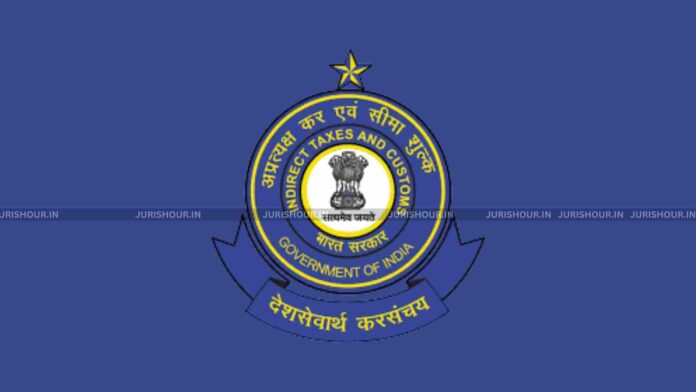The Central Board of Indirect Taxes and Customs (CBIC) has issued a notification bringing into effect, from October 1, 2025, key amendments to the Central Goods and Services Tax (CGST) Act, as introduced in the Finance Act, 2025. Among these, the most consequential change is the retrospective amendment to Section 17(5) of the CGST Act, directly overturning judicial interpretations laid down in the landmark Safari Retreats case.
According to the notification, “In exercise of the powers conferred by clause (b) of sub-section (2) of section 1 of the Finance Act, 2025, the Central Government hereby appoints the first day of October as the date on which the provisions of clauses (ii) and (iii) of section 121, sections 122 to 124 and sections 126 to 134 of the said Act shall come into force.”
Blocked Credit under Section 17(5)
The most critical change is contained in Section 124 of the Finance Act, 2025, which amends Section 17(5) of the CGST Act — the provision that restricts input tax credit (ITC) on certain categories of expenditure.
Earlier, the law barred ITC on the construction of immovable property but provided an exception for “plant or machinery.” Through the new amendment, the phrase “plant or machinery” has been substituted with “plant and machinery”, effective retrospectively from July 1, 2017, the very inception of GST.
Significantly, the amendment has been given an overriding effect with the language: “notwithstanding anything to the contrary contained in any judgment, decree or order of any court or authority.”
The Explanatory Memorandum to the Finance Bill, 2025, clarifies that this drafting is intended to nullify all judicial precedents — including the Safari Retreats decision — which had allowed broader interpretation of ITC availability.
The Safari Retreats Case and the Functionality Test
The retrospective amendment directly targets the precedent set by the Supreme Court on October 3, 2024, in the Safari Retreats case.
In that case, the Odisha High Court had ruled that a shopping mall constructed for the purpose of renting or leasing amounted to a “plant,” thereby making ITC on construction costs admissible. The Court reasoned that if GST was payable on rental income, the taxpayer should not be denied ITC on the tax paid for construction.
The Supreme Court upheld this reasoning and applied the “functionality test,” holding that where a building itself is integral to providing taxable services, it could be treated as a plant. This interpretation effectively opened the door for taxpayers in sectors such as real estate, retail, and hospitality to claim ITC on large-scale construction projects.
Government’s Response: Retrospective Overruling
The Finance Act, 2025, amendment explicitly rejects this interpretation. By retrospectively substituting the phrase and expressly overruling contrary judicial decisions, the government has reasserted its long-held stance that ITC should remain blocked for immovable property construction, irrespective of its use in taxable supplies.
Industry experts point out that this is one of the rare instances where Parliament has stepped in to legislatively override a Supreme Court ruling, not just prospectively, but with retrospective effect from the very introduction of GST.
Impact on Taxpayers and Likely Litigation
The retrospective change is expected to trigger significant disputes. Many taxpayers, acting on the Odisha High Court ruling and the Supreme Court’s affirmation, had opted to claim ITC on construction costs instead of capitalizing such expenditure and claiming depreciation under the Income Tax Act.
With the amendment now being applied retrospectively from July 1, 2017, such taxpayers may face demands to reverse the ITC claimed, along with interest liabilities. Industry sources caution that this could result in a fresh wave of litigation, particularly on the constitutional validity of retrospective tax amendments and the fairness of recovering credit already granted by courts.
Tax practitioners note that while retrospective amendments are not unprecedented, they often lead to challenges under the principles of natural justice, legitimate expectation, and certainty in taxation.
With the CBIC notification fixing October 1, 2025 as the effective date, the stage is now set for implementation of these sweeping changes. Businesses, particularly in the real estate, infrastructure, retail, and hospitality sectors, will need to revisit their ITC positions and prepare for potential disputes with the tax authorities.
Read More: Chartered Accountants to Stage Peaceful Protest Over IT Portal Glitches and Filing Deadlines

